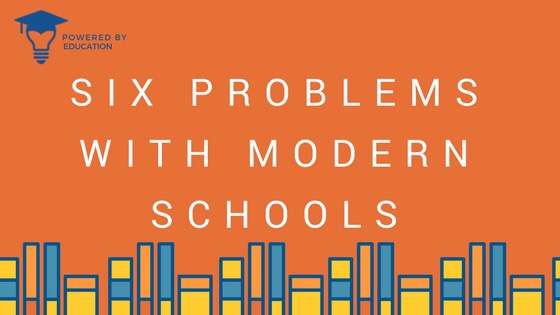In Massachusetts, you have more options than you may think…
Brick & Mortar Public Schools
Compulsory Attendance
Your child’s age is your first indicator of his or her eligibility for beginning school. Students may start kindergarten if they turn five on or before September 1st. A child does not have to enroll in school at age five, but must be enrolled in 1st grade if he or she is six on or before December 31. see more >
Required Documentation
Massachusetts school districts set the requirements for what documentation is required prior to enrolling a student in their district. To get that information, contact the district directly.
Some legal documents are required for Massachusetts students to attend school:
- Certified Birth Certificate/proof of identity
- Official copy of records/transcripts from the previous school the child most recently attended
- A shot immunization record (or proof that immunization is not required for the child)
- Click here to view the immunization requirements
- Proof of home address (for example, a rental agreement or tax statement)
School Fees
Paying some fees is a part of public education, though it is primarily a free education. Students are expected to supply their own basic school supplies such as paper, pencils, and notebooks. Each district has a list of approved expenditures for students. Fee waiver forms can be requested from the school if there is a situation that prevents a family from being able to pay for required materials or events.
Some typical items on that list include:
- Lunch
- Summer school
- Student parking passes (high school)
- Lost textbooks
- Late or lost library books
- Field trips
- Special class-required fees (e.g., science lab fees)
Public Charter Schools
What are Charter Schools?
Charter Schools are tuition-free public schools operated by independent, non-profit governing bodies.
Parents, teachers, and community leaders sign a “charter” or contract with a school district or state agency to create a charter school and give students more educational options than their assigned school. Charter schools have flexibility over classroom hours, curriculum, and employment policies, but are subject to periodic reviews based on student performance. In Massachusetts, public charter school students are measured against the same academic standards as students in other public schools. Local boards of education monitor the academic and financial performance of charter schools, and, can revoke or refuse to renew a school’s charter.
Massachusetts Charter Schools
A full list of Massachusetts Charter Schools can be found here.
Frequently Asked Questions
Frequently asked questions about charters can be found at the Massachusetts Charter Public School Association .
Enrollment
Most charter schools do not have attendance zones. If you are interested in applying for your child, you must apply directly to the school. The application and selection process can be quite complicated. Make sure to contact the school early to determine the correct next steps to applying.
Virtual Public Schools
A Commonwealth of Massachusetts Virtual School is a public school operated by a board of trustees whose teachers primarily teach from a remote location using the Internet or other computer-based methods and whose students are not required to be located at the physical premises of the school. Like a charter school, a virtual school is an autonomous, single-school district that operates independently of any existing school district. Find more information
TEC Connections Academy Commonwealth Virtual School (TECCA)
Phone: (888) 410-6502
Grades: K-12
Private Schools
What makes a school “private”?
Private schools charge tuition, and many have a religious mission. Some private schools offer families assistance to make tuition payments. Click below for the complete list of over 650 private schools across the state.
Private School Review offers free, detailed information on U.S. private schools combined with useful community data (e.g., housing costs) and maps of the surrounding areas.
*Information on non-public school admission requirements should be obtained from the school directly.
Educational Choice Programs
Currently, there are no education choice programs in Massachusetts.
For more information on policy change or to get involved in the school choice movement in Massachusetts visit EdChoice.
Private Virtual Schools
George Washington University Online High School is an online college preparatory academy for motivated students who are willing to be challenged to become the best students and persons they can be. Combining award-winning curriculum with small class sizes and intensive college counseling, students receive a flexible, individualized education attuned to their own needs and goals.
International Academy is a K12, Inc accredited, online private school for grades K–12. Students earn a U.S. high school diploma while using award-winning K¹² curriculum
They offer extensive, individualized academic and counseling support keep students on track. The flexibility allows students to explore their passions. Full-time and part-time options are available.
International Connections Academy is a fully-accredited, online, college preparatory private school serving K–12 students worldwide. The program combines a top-rated curriculum with talented teachers, cutting-edge technology, the flexibility to learn at home, and direct family involvement to ensure each student realizes his or her full potential.
The Keystone School offers flexible education programs for high school and middle school students. Whether your student wants to study full-time or just needs individual classes, they offer more than 170 courses from credit recovery to world languages and AP. Students can enroll at any time.
Home Education
Your options
In Massachusetts, parents have three options when it comes to educating their children at home. These options are: homeschool with a church school, with a private school, or using a private tutor. Parents in Massachusetts may choose to homeschool their own children in grades K – 12. Below are the requirements for homeschooling in MA. learn more >
- Submit an annual Notice of Intent to the school district
- Teach the required subjects
- Keep good records
- Test or evaluate your child as required
Dual Enrollment
Commonwealth Dual Enrollment Partnership (CDEP)
CDEP is a discretionary state grant program that allows public two- and four-year institutions to apply for funds to allow students to complete dual enrollment courses at nominal to no cost. To be eligible for CDEP funding, a campus must develop dual enrollment programming that:
- Provides a variety of college-level courses in multiple disciplines. Campuses are encouraged to enroll students in courses that fall within the MassTransfer block to increase likelihood of transfer.
- Focuses efforts to enroll qualified students with particular emphasis on first-generation college-goers, low-income students, students of color, and students interested in high demand career areas. (Students who are not first-generation college students, students of color, low-income students, or interested in STEM fields are also eligible to participate.)
- Connects opportunities for college preparation, access and success with academic components, with emphasis on providing information on college admissions, application of dual enrollment credit, accessing student support services and financial aid. If courses are taught at the high school, IHEs must provide college tours.
- Includes as many qualified students as possible based on available state funding and in-kind contributions.
Course Fees
Students participating in CDEP, a discretionary state grant program, take their first dual enrollment course at little to no cost. Costs for enrolling in subsequent courses are determined by individual institutions. Student participation in CDEP is determined by individual institutions, based on institutional capacity and state appropriation.
More about Magnet
Today Magnet Schools of America released a study showing [...]
The Foundation for Blended and Online Learning
In January, K12, INC. announced the launch of The [...]
Six Problems with Modern Schools
The modern school system was created during the Industrial [...]
Charter vs. Magnet
Today, we answer the age old question... what is [...]
Charter School Lottery: Explained
Many question how charter schools choose which students attend [...]




